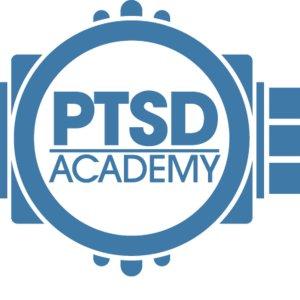Everyone deserves a chance to heal

What is PTSD? (part 2/3) Insomnia and the Effects of Stress
Episode 002: Previously, we discussed the negative impact of stress on the brain. Specifically, we looked at how chronic increases in adrenaline and cortisol shrink the hippocampus and prefrontal cortex areas of the brain. This negatively affects stress tolerance and the formation of new memories.
In today’s episode, we’ll examine the components of success or failure in any endeavor: capacity, opportunity and motivation. We’ll use this construct to dive in to the effects of adrenaline and cortisol on quality of life, very often from the perspective of the PTSD sufferer as well so it’s more interesting to listen to. This intuitive approach will allow you to be better able to assess the strengths and weaknesses of a PTSD Recovery Plan – of your own design.
There is a dose-dependent effect that adrenaline has on
nightmare experiences. The more adrenaline you have pumping through your veins,
the more nightmares you will have. Therefore, the primary medical approach is
to use the old blood pressure meds that block adrenaline receptors. It’s that
simple.
Once in a while the prazosin, propranolol or clonidine
used to treat nightmares lower the blood pressure too much – before we can get
the dose high enough to knock out the nightmares. Prazosin is by far the number
one choice in multiple studies. The average dose of prazosin throughout the VA
health care system, for example is 15mg po total daily. Because it is used to
treat nightmares, the dose is quite high. But that makes me consider that
adrenaline may be responsible for lots of uncontrolled hypertension, but we’re
not adequately considering trauma and PTSD in healthcare.
I tell all of my primary care colleagues that will listen
that they need to do good trauma assessments in all of their patient because,
just like dementia and delirium, we’re terrible at knowing who has PTSD on our
patient census. I use the term
“Adrenaline-Associated Sleep Disturbance” to better describe the
neurobiological relationship
between stress, PTSD and trauma-related nightmares. I believe we are keeping our head in the sand
when we continually separate the diagnoses of insomnia, REM behavior disorder,
sleep paralysis, restless leg syndrome, PTSD, nightmare disorder and night
terror disorder – without asking how they can all be linked together quite
simply. Adrenaline appears to overwhelm the Globus pallidus enough to allow
coordinated breakthrough contractions of skeletal muscle. You move when you
sleep – when you’re biologically not supposed to. Therefore, therapies can’t
call themselves holistic if they aren’t addressing ways to calm down the adrenal
glands in order to improve sleep quality. No, we still seem to ask all the
wrong questions.
PTSD
symptoms occur in syndromes commonly
* Cognitive
Problems – decreased memory, short attention span, forgetfulness, decrease problem solving
ability* Mood Problems
– poor impulse control, increased impulsivity, prone to instability, quicker to
rage, then feels remorse or depressed after outburst* Social
Problems – Increased sweats, panic, decreased socialization, increased
isolation, loneliness, then hopelessness sets in
Therefore, when anger is incorrectly attributed a “my PTSD is acting up”, they’re referring to the end result of the medical changes that have occurred in the body. The pitfall to this way of thinking is that the victim stays a victim and lazily scoffs at the doze...






 Visit Podcast Website
Visit Podcast Website RSS Podcast Feed
RSS Podcast Feed Subscribe
Subscribe
 Add to MyCast
Add to MyCast